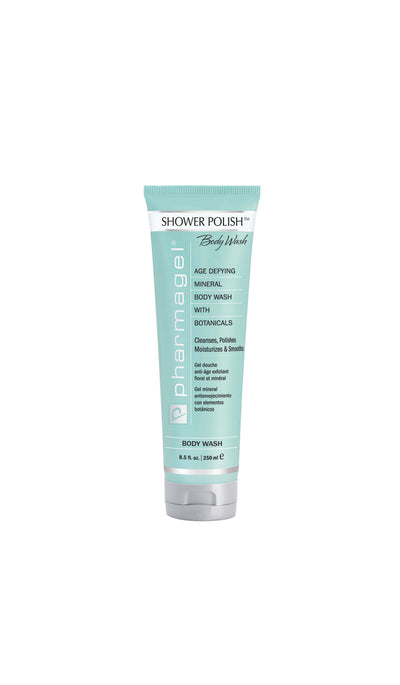Ingredient Spotlight: Aloe Vera
Aloe vera is a succulent plant reaching between 25-40 inches tall at full maturity. It bears thick leaves that contain a clear, viscous fluid called aloe. Rich with beneficial phytochemicals, the aloe vera plant was deemed the "plant of immortality" by ancient Egyptians 6000 years ago when they discovered the leaf gel (aloe) provided relief from numerous skin conditions such as dryness, sunburn, insect bites, rashes, wounds, and general irritation.
What Is Aloe Vera Gel?
Today, we know that aloe vera gel consists of polysaccharides that stimulate skin regrowth, collagen production, and cell regeneration by nourishing skin cells with sterols, lipids, and active enzymes. Aloe vera gel also promotes healing due to its anti-inflammatory properties provided by salicylates and glycoproteins.
Found in fruits and vegetables, salicylates are converted in the body into salicylic acid, a known analgesic and anti-inflammatory agent that constricts pore diameter to allow extra room for new skin cell growth. Glycoproteins are necessary for energy metabolism, immune system functioning, and hormone regulation.
5 Benefits of Using Aloe Vera Skin Products

May Help Reduce Mild to Moderate Acne Outbreaks
A proven antimicrobial and anti-inflammatory agent, aloe vera is likely effective for treating mild to moderate acne by controlling the growth of acne bacteria called Cutibacterium acnes. In addition, the salicylic acid found in aloe vera is an antiseptic agent that many acne medications contain to reduce excess skin oil. With its ability to boost wound healing and retain moisture, aloe vera is less likely to cause overly dry skin like many acne medications do.
May Help Relieve Symptoms of Eczema and Psoriasis
Polysaccharides are also referred to as polycarbohydrates and represent the most common type of food carbohydrate. What makes polysaccharides so special is their ability to attract and retain water molecules while optimizing the benefits of other ingredients they combine with.
People with eczema or psoriasis suffer intense itching, burning, and broken skin that is prone to fungal or bacterial infections. Aloe vera's anti-bacterial and anti-inflammatory properties soothe itching and burning while reducing the risk of broken skin developing an infection.
Moisturizes Dry Skin
Skin creams containing aloe vera improve skin dryness and skin tightening by retaining moisture necessary for keeping skin smooth and supple. Aloe vera's powerful ability to hydrate skin comes from the water-attracting molecules found in polysaccharides. Another great thing about aloe vera is that it also helps to alleviate the itchiness, flaking, and burning often associated with dry skin.

May Reduce the Visibility of Fine Lines and Wrinkles
Aloe vera contains plant sterols that promote wound healing and the production of hyaluronic acid and collagen, two agents that work remarkably well to retain moisture. If you already have mild wrinkling, aloe vera skincare products may decrease the appearance of fine lines by improving the suppleness and texture of your skin. When skin is optimally hydrated, the outer layers stay more "plumped" out and smoother-looking.
May Lighten Age Spots
Some studies indicate that two chemicals found in aloe vera may offer skin-lightening properties for lessening the dark color of age spots. Aloesin and aloin may help lighten hyperpigmentation on the skin by destroying any existing melanin molecules to stop additional melanin formation.
Important note: If you have a food intolerance to any of these suggested foods, such as shellfish or nuts, eating them can make your acne worse.
Are There Any Side Effects From Using Aloe Vera Skin Products?
Aloe vera may cause mild rashes or redness when used by individuals who have sensitive skin and are prone to allergic skin reactions. According to the National Institutes of Health (NIH), topical aloe vera products are well tolerated, with occasional reports of temporary itching or burning. Avoid getting aloe vera in your eyes when applying it to the skin around the eyes. If this happens, flush out the eye(s) with clean water until any irritation is gone.









